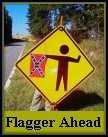April 1-30th 2011 is Confederate History and Heritage Month throughout the USA!
The Confederate History Month Committee of the National and Georgia Division Sons of Confederate Veterans proudly recognizes and appreciates the signing of proclamations by Southern governors, mayors and county commissioners since 1995 designating the month of April as “Confederate History and Heritage Month.”
In 2009, the Georgia General Assembly approved Senate Bill No.27 and was signed by Past Governor Sonny Perdue, officially and permanently designating April as Confederate History and Heritage Month in Georgia.
In 1999, Texas Senate Resolution No. 526 passed designating April as Confederate History and Heritage Month in the “Yellow Rose” State of Texas.
The 150th Anniversary “Sesquicentennial” of the War Between the States ”1861-1865” is now underway through 2015 and the Confederate History Month Committee encourages everyone to make it a family affair and learn more about this important time in our nation’s past. See Georgia Division SCV Sesquicentennial Committee website at: http://www.150wbts.org/
Confederate History Month commemorates the men and women of the Confederate States of America who came from all races and religions that include: Irish-born General Patrick R. Cleburne, Black Confederate drummer Bill Yopp, Mexican born Colonel Santos Benavides, Cherokee Born General Stand Watie and Jewish born Confederate Nurse Phoebe Pember who was the first female administrator of Chimboraza Hospital in Richmond, Virginia where she served until the end of War Between the States.
The Confederate History Month Committee salutes the women of Old Dixieland like Sally Tompkins of Richmond, Virginia who was commissioned a Captain by President Jefferson Davis and who financed and ran the Robertson Hospital in Richmond, Virginia during the war and….
Mrs. Charles J. Williams of Columbus, Georgia who was among those responsible for getting Confederate Memorial Day recognized as a legal holiday in Georgia by act of the Georgia legislature in 1874. For over 100 year’s members of the Ladies Memorial Association, United Daughters of the Confederacy and Sons of Confederate Veterans have held annual Confederate Memorial days on or near April 26th. Other states celebrate Confederate Memorial Day on May 10th and June 3rd--the birthday of Confederate President Jefferson Davis.
Read more about Confederate History Month at: http://www.confederateheritagemonth.com
In 2009, the Georgia General Assembly approved Senate Bill No.27 and was signed by Past Governor Sonny Perdue, officially and permanently designating April as Confederate History and Heritage Month in Georgia.
In 1999, Texas Senate Resolution No. 526 passed designating April as Confederate History and Heritage Month in the “Yellow Rose” State of Texas.
The 150th Anniversary “Sesquicentennial” of the War Between the States ”1861-1865” is now underway through 2015 and the Confederate History Month Committee encourages everyone to make it a family affair and learn more about this important time in our nation’s past. See Georgia Division SCV Sesquicentennial Committee website at: http://www.150wbts.org/
Confederate History Month commemorates the men and women of the Confederate States of America who came from all races and religions that include: Irish-born General Patrick R. Cleburne, Black Confederate drummer Bill Yopp, Mexican born Colonel Santos Benavides, Cherokee Born General Stand Watie and Jewish born Confederate Nurse Phoebe Pember who was the first female administrator of Chimboraza Hospital in Richmond, Virginia where she served until the end of War Between the States.
The Confederate History Month Committee salutes the women of Old Dixieland like Sally Tompkins of Richmond, Virginia who was commissioned a Captain by President Jefferson Davis and who financed and ran the Robertson Hospital in Richmond, Virginia during the war and….
Mrs. Charles J. Williams of Columbus, Georgia who was among those responsible for getting Confederate Memorial Day recognized as a legal holiday in Georgia by act of the Georgia legislature in 1874. For over 100 year’s members of the Ladies Memorial Association, United Daughters of the Confederacy and Sons of Confederate Veterans have held annual Confederate Memorial days on or near April 26th. Other states celebrate Confederate Memorial Day on May 10th and June 3rd--the birthday of Confederate President Jefferson Davis.
Read more about Confederate History Month at: http://www.confederateheritagemonth.com













